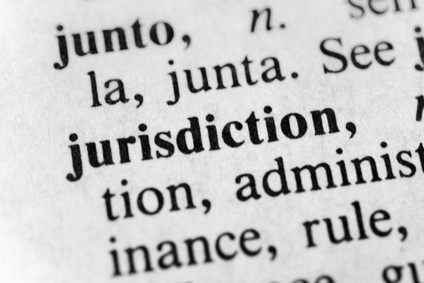The Appellate Court of Illinois, Second District, recently held that a mortgagee with a foreclosure judgment could not collect on the deficiency against rents from other properties owned by the mortgagor, because the mortgagee’s foreclosure judgment was not superior to the prior recorded mortgages for the other properties which contained assignment-of-rent clauses, and the other mortgagees had executed forbearance agreements to enforce those assignment-of-rents clauses. A copy of the opinion in BMO Harris Bank N.A. v. Joe Contarino, Inc. is available at: Link to Opinion. In 2013, a bank, acting as the assignee of the FDIC, foreclosed on four mortgages…
Posts tagged as “Foreclosure”
The U.S. Court of Appeals for the Ninth Circuit recently reversed the dismissal of a Fair Debt Collection Practices Act claim arising out of a non-judicial foreclosure. The Ninth Circuit ruled that section 1692f(6) of the FDCPA applies to non-judicial foreclosure activity. A copy of the opinion in Dale Dowers v. Nationstar Mortgage, LLC is available at: Link to Opinion. Two borrowers refinanced a loan secured by their home and executed a note and deed of trust. The lender assigned the note to a purchaser of the subject loan (the “loan owner”). Later, the lender assigned the deed of trust…
Reversing a trial court’s ruling in favor of a condominium association and against a mortgagee, the Appellate Court of Illinois, First District, recently held that the Illinois Condominium Property Act’s (“Condo Act”) provision creating a mechanism to extinguish liens for pre-foreclosure common expense assessments does not create a timing requirement as to when common expense assessments must be paid post-foreclosure to confirm extinguishment of the pre-foreclosure lien. A copy of the opinion in 5510 Sheridan Road Condominium Association v. U.S. Bank is available at: Link to Opinion. A condominium association (“COA”) filed a lawsuit against a mortgagee seeking possession of…
The District Court of Appeal of the State of Florida, Second District, recently reversed a summary judgment award in favor of the borrowers in a foreclosure action, finding a triable issue of material fact existed concerning whether the face-to-face counseling requirements of 24 C.F.R. § 203.604 applied, as the mortgagee did not submit evidence “as to whether the mortgagee and loan servicer had a branch office within 200 miles of the property during the time period before three full monthly installments due on the mortgage went unpaid.” A copy of the opinion in ARC HUD I, LLC v. Ebbert is…
The District Court of Appeal of Florida, Fifth District, recently ruled that a specific denial that a mortgagee complied with HUD’s pre-foreclosure regulations that were incorporated into the mortgage was a denial of a condition precedent to foreclosure that shifted the burden to the mortgagee to prove compliance.
The District Court of Appeal of Florida, Second District, recently rejected a borrower’s objection to a foreclosure sale under the theory the mortgagee failed to provide him with an “estoppel letter,” which would have allowed him to exercise his right of redemption. A copy of the opinion is available at: Link to Opinion. A foreclosure judgement was entered and the property was sold via public sale. Ten days later, the borrower objected to the sale of the property. The objection was denied and a certificate of title was issued to the mortgagee. The borrower appealed, arguing that the trial court…
The District Court of Appeal of Florida, Second District, recently reversed an order denying a claim for a post-foreclosure sale deficiency judgment, holding that the trial court abused its discretion by excluding from evidence an expert’s testimony and report as to fair market value because the report was dated six days after the foreclosure sale. A copy of the opinion is available at: Link to Opinion. A final judgment of foreclosure in the amount of $2.4 million was entered against the borrower company and its principal. A third party purchased the property at a foreclosure sale for $100. The third…
The Appellate Court of Illinois, First District, recently held that a mortgagee’s affidavits detailing the due and diligent inquiry it undertook to attempt to personally serve a borrower were sufficient to allow service by publication in a mortgage foreclosure action.
The U.S. Court of Appeals for the Ninth Circuit recently held that the trustee of a California deed of trust securing a real estate loan was not a “debt collector” under the federal Fair Debt Collection Practices Act, because the trustee was not attempting to collect money from the borrower. In so ruling, the Court held that “actions taken to facilitate a non-judicial foreclosure, such as sending the notice of default and notice of sale, are not attempts to collect ‘debt’ as that term is defined by the FDCPA.” The Court also vacated the dismissal of the borrower’s federal Truth…
The District Court of Appeal for the First District, State of Florida recently ordered the dismissal of a foreclosure action because it held that the trial court's jurisdiction expired prior to the entry of the judgment of foreclosure in the case.
The U.S. Court of Appeals for the Fourth Circuit recently confirmed that a law firm and its employees, who pursued foreclosure on behalf of creditors, were acting as “debt collectors” under the federal Fair Debt Collection Practices Act (FDCPA) when they pursued foreclosure proceedings against a borrower. In so ruling, the Court also confirmed that a servicer that does not also own the mortgage loan does not have a duty to provide notice of the sale and assignment of a loan to itself under the federal Truth in Lending Act (TILA) merely because it accepts the assignment of the deed…
A New York Supreme Court held that the notice of default requirement in New York Real Property Actions and Proceedings Law (RPAPL) § 1304 applies only to a borrower and not a borrower’s estate. As a result, according to the Court, foreclosing entities do not have to provide a notice of default pursuant to the RPAPL to a borrower’s estate after the death of the borrower. A copy of the opinion in US Bank NA v. Levine may be found here: Link to Opinion. A mortgagee commenced a residential mortgage foreclosure action after a deceased borrower’s estate failed to make payments. The…











